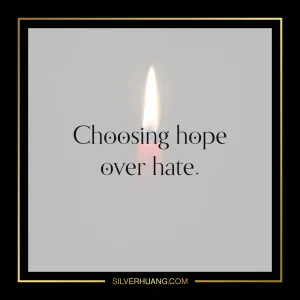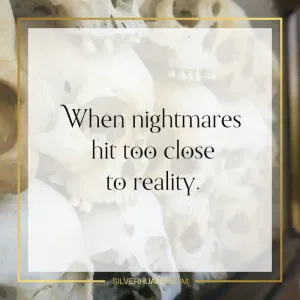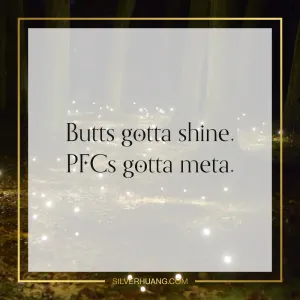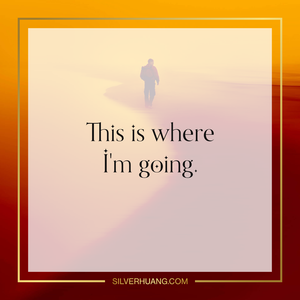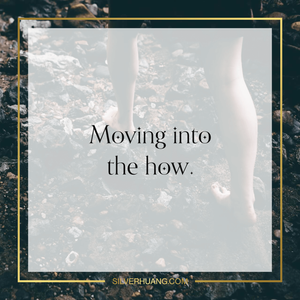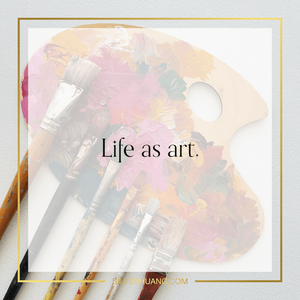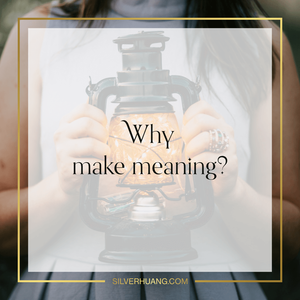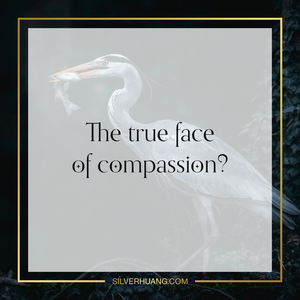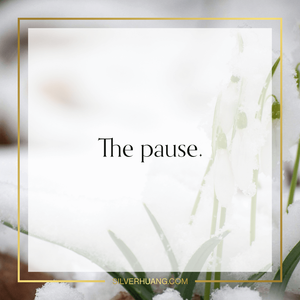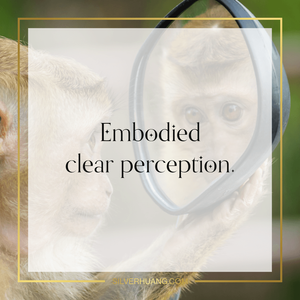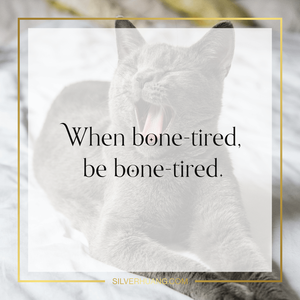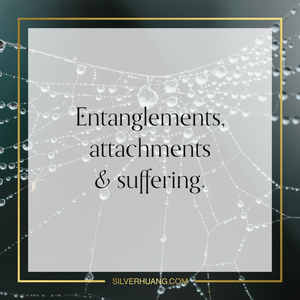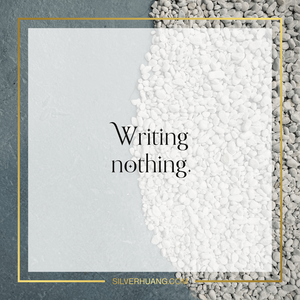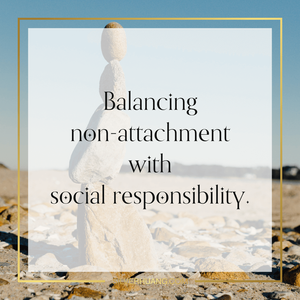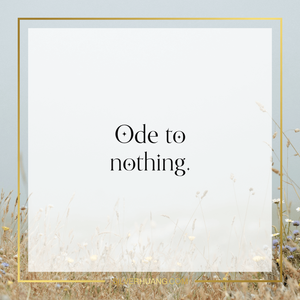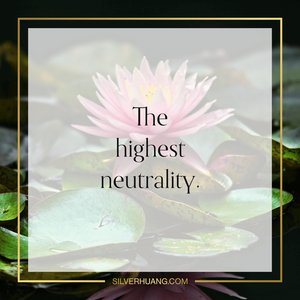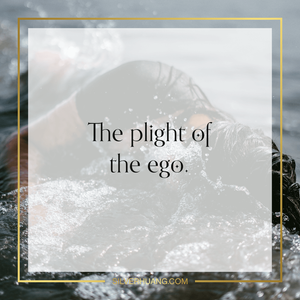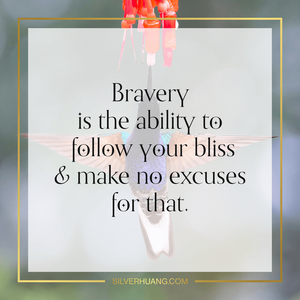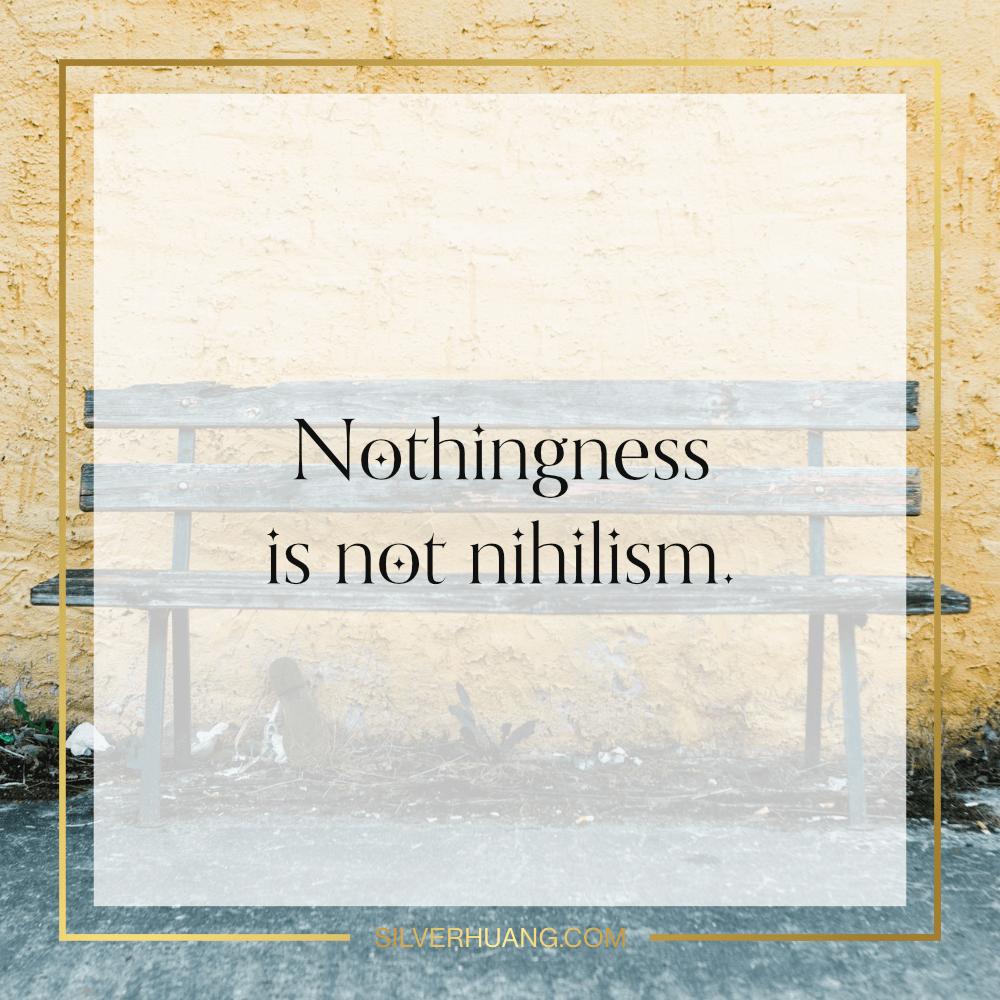
Nothingness is not nihilism.
When I meditated upon the nothingness of reality, the question arose in me: How do I not see this as negative and nihilistic?
Even when I was younger, I saw it as awe-inspiring: Look at all things born from nothingness! Instead of hopelessness, I felt wonder.
But I couldn't explain why it didn't make me feel like life was pointless, and instead made me feel more determined.
I may have a better idea today. Ageing is great. 🤣
I realize that, when I'm able to truly see (and remember) all reality as empty, and all things as illusory and impermanent, instead of making every act seem pointless, I see it as an opportunity to exercise my human capability for autonomy in every moment.
It makes me ask:
- What do I want to do with the consciousness I have?
- What do I want to do with the time I have?
I can choose to destroy, or I can choose to create.
I can choose to take, or I can choose to give.
I can choose to heal, or I can choose to blame.
I can choose to harm, or I can choose to help.
I can choose to try, or I can choose to give up.
And more. So many choices.
I usually sum it up to myself as: Do I want to be constructive or destructive?
It is also a most powerful teaching on how I have no control over the thoughts, feelings, choices and actions of others, for they, too, just like me, have the same ability to choose whatever they will or can. Hence, despite my ability to choose, I have no control over outcomes, for all outcomes are interdependent on beings and things not-I.
Our freedom to choose (for ourselves) is simultaneously our lack of control (over anything or anyone else). Power and powerlessness in one? How sublime a contrary experience.
Hence, choice, of course, can also be seen as illusory. But therein lies the practice.
J. R. R. Tolkien said it best through the character of Gandalf in The Lord of the Rings:
“I wish it need not have happened in my time," said Frodo.
"So do I," said Gandalf, "and so do all who live to see such times. But that is not for them to decide. All we have to decide is what to do with the time that is given us.”
Of course, one does not need to believe in the concept of "emptiness of reality" to arrive at the same conclusion.
I suppose this is why some religions have a heaven and hell. Once again, it's all about choice: What do I want to do with the time that is given me?
I'm personally in favour of the concept of nothingness, more than the "carrot and stick" idea of heaven and hell. I like what feels to me like the neutrality of "nothingness": There's no point anyway, so what am I going to choose here and now?
